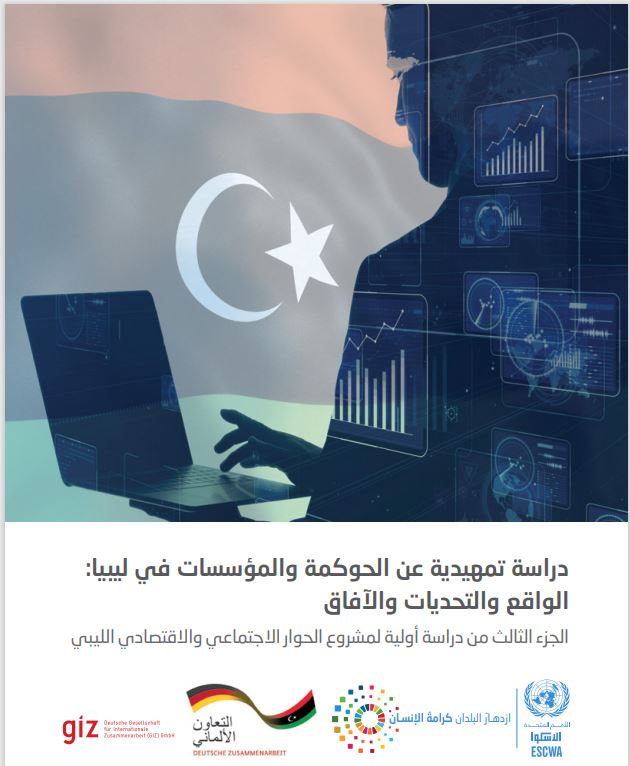By Sami Zaptia.

London, 29 October 2020:
‘‘A Preliminary Study on Governance and Institutions in Libya: Reality, Challenges and Prospects’’ has been published by the United Nations Economic and Social Commission for Western Asia (ESCWA),
The Libyan Socio-Economic Dialogue project is one of the projects implemented and managed by the ESCWA, funded by the German Federal Ministry for Economic Cooperation and Development, through the German Agency for International Cooperation (GIZ).
ESCWA reports that the project aims to provide a platform for Libyans to develop, discuss and formulate a future vision for the future economic and social development of Libya. The dialogue platform will be based on solid scientific research and evidence from the initial and normative research phase of the project, which is based on the preparation of three basic scientific studies in the fields of economics, society and public governance in Libya. The research will benefit from ESCWA’s expertise and organizational support, as well as the expertise of a wide range of Libyan experts, partners and regional collaborators.
These studies are broad and comprehensive, drawing an accurate picture of the mechanism of action of Libya’s economy, society and governance, monitoring challenges, identifying outstanding opportunities, and raising central questions aimed at activating the intellectual debate on institution-building, social fabric and alternative economic frameworks for sustainable development in Libya.
These studies are based on the principles of the 2030 Sustainable Development Plan as a criterion, identify potential priority topics that will serve as inputs or catalysts for broader transformations, and help Libya advance the SDGs. Each of the three studies was enriched and vaccinated through consultations and expert group meetings, held for each of the three axes.









